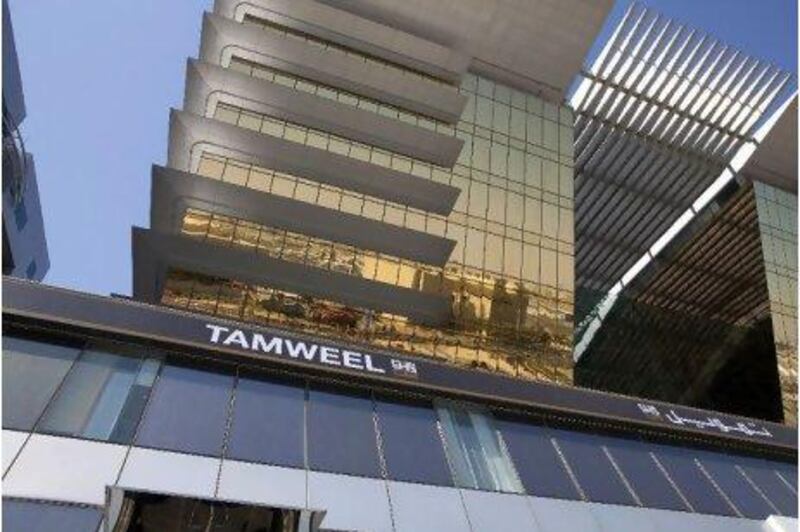Tamweel's re-entry into the home financing market this week is not expected to give a huge boost to Dubai's flagging property sector, despite terms observers say are competitive with those offered by banks.
The Islamic home finance company based in Dubai restarted its Islamic mortgage business on Monday after a two-year freeze, offering to finance up to 80 per cent of the purchase price of completed properties.
The restart followed a rescue by Dubai Islamic Bank (DIB), which in September raised its stake in the company from about 21 per cent to 57.3 per cent. That gave Tamweel the backing of DIB's customer deposits and balance sheet, and set the stage for its return.
The rates Tamweel is charging - 7.4 per cent a year, plus between 0.5 and 1.5 percentage points based on customers' income levels and other factors - are not the lowest available in the country, analysts and brokers said yesterday.
But they are about on par with those from the country's biggest lenders.
In addition to profit rates - the Sharia-compliant equivalent of interest - Tamweel is charging a 1 per cent processing fee on Islamic home financing for loans of up to 25 years. Customers can borrow a maximum of Dh5 million (US$1.3m) to buy up to two properties.
"Now that prices are reasonable in most areas, a mortgage with an attractive rate of interest over an extended period might kick-start a buying trend for units that fall beneath the Dh5m mark," said James Gauduchon, the manager of corporate marketing at Better Homes, a property brokerage in Dubai.
Emirates NBD is offering interest of 4.5 per cent plus a spread based on rates prevailing in credit markets. That spread is now 4.25 percentage points for expatriate customers, a customer service representative at the bank said.
HSBC, the largest foreign bank in the country, is offering between 6.25 and 6.75 per cent interest plus a spread based on the three-month Emirates interbank offered rate, which now stands at about 2.15 per cent.
Financing from Tamweel is sometimes pricier because the company is solely a home-financing provider and not a bank, a customer service representative said, and that made the cost of bringing in money for financing higher.
"Because we are a finance company our rates are higher than banks," the representative said.
The big question now is what, if anything, Tamweel's return will do to resuscitate a Dubai property market where prices have fallen by an average of more than 50 per cent in some areas since the peak in 2008.
More players ready to provide financing for property could only help the market, analysts said yesterday, but it all depended on how much money Tamweel could turn over, a subject on which the company has remained silent. The restart in lending is "probably more symbolic", said Chet Riley, a property analyst at Nomura in Dubai.
"Tamweel now is getting access to DIB's deposit book to allow them to lend a little more but in the scale of lending [it] is not a big deal."
Another unknown was just how picky Tamweel would be about financing property purchases, Mr Gauduchon said. "We are not sure if there are hidden qualification factors that will prevent many potential buyers from being able to secure a mortgage with Tamweel."
Tamweel ceased home financing in November 2008 after tightening credit markets exposed cracks in a business model that relied on short-term debt to fund its portfolio of loans. Unlike a commercial bank, Tamweel did not have a stable base of customer deposits.
A long-contemplated merger with Amlak Finance, the UAE's other big Islamic home financing company, was called off in September when DIB increased its stake.
Together, Amlak and Tamweel have about Dh25 billion of mortgages, comprising a large portion of the country's overall mortgage market, estimated last year at Dh60bn.






